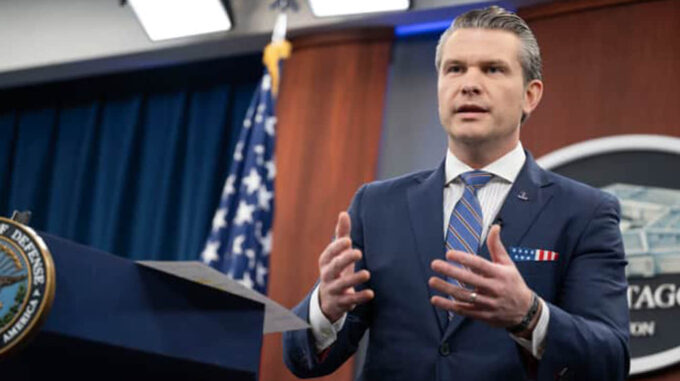The head of the U

S. Department of Defense, Pít Hegseth, will miss important meetings in Brussels dedicated to supporting Ukraine and European security, which has attracted broad interest among political circles and analysts. Previously, it was reported that Hegseth would not participate in the "Ramstein" conference at NATO headquarters, but it is now known that he will also miss other significant events, including the Ukraine-NATO Council meeting. According to sources who spoke to "European Pravda" on condition of anonymity in Brussels, the U.S. Secretary of Defense plans to arrive in the European capital by the end of Wednesday, but his stay in Brussels will be limited. Based on this information, it becomes clear that Pít Hegseth will not participate in the Ukraine-NATO Council meeting scheduled for Thursday morning. Instead, this important mission will be carried out by U.S. NATO Ambassador Matthew Wirtaker, who will join the delegation at that level and represent the Washington administration during key discussions. As reported by the Associated Press, Hegseth was supposed to arrive in Brussels late Wednesday evening, following the conclusion of the "Ramstein" meeting held on June 4. However, the Pentagon explained his absence during this period with objective reasons, including a tight schedule and planned internal events. Earlier, it was also reported that the U.S. Secretary of Defense would not participate in the "Ramstein" format meeting, which traditionally takes place at NATO headquarters in Brussels. This is significant news for the U.S. Department of Defense, especially considering the importance of these discussions for determining subsequent steps in supporting Ukraine and addressing security challenges in the region. A working lunch meeting of the Ukraine-Germany cooperation council is scheduled for midday the next day, immediately after the official ministerial meeting. This means that Hegseth will not have the opportunity to attend these events in person, which could influence the level of his representation from the United States regarding support for Ukraine. It is worth noting that his place in Brussels will be taken by Matthew Wirtaker — an experienced diplomat and U.S. ambassador to NATO, who has repeatedly served as an official representative in key European security engagements. Overall, the situation attracts the interest of analysts and political experts, as the absence of the U.S. Secretary of Defense from these key events perhaps indicates a shift in priorities or a focus of Washington’s attention on other areas in the context of supporting Ukraine and regional security. In any case, Hegseth’s absence in Brussels underscores the importance of diplomatic and political levels of meetings, as cooperation among allies must be as coordinated as possible, especially in times of crisis and war.

